'There's nothing better than a police dog's nose'
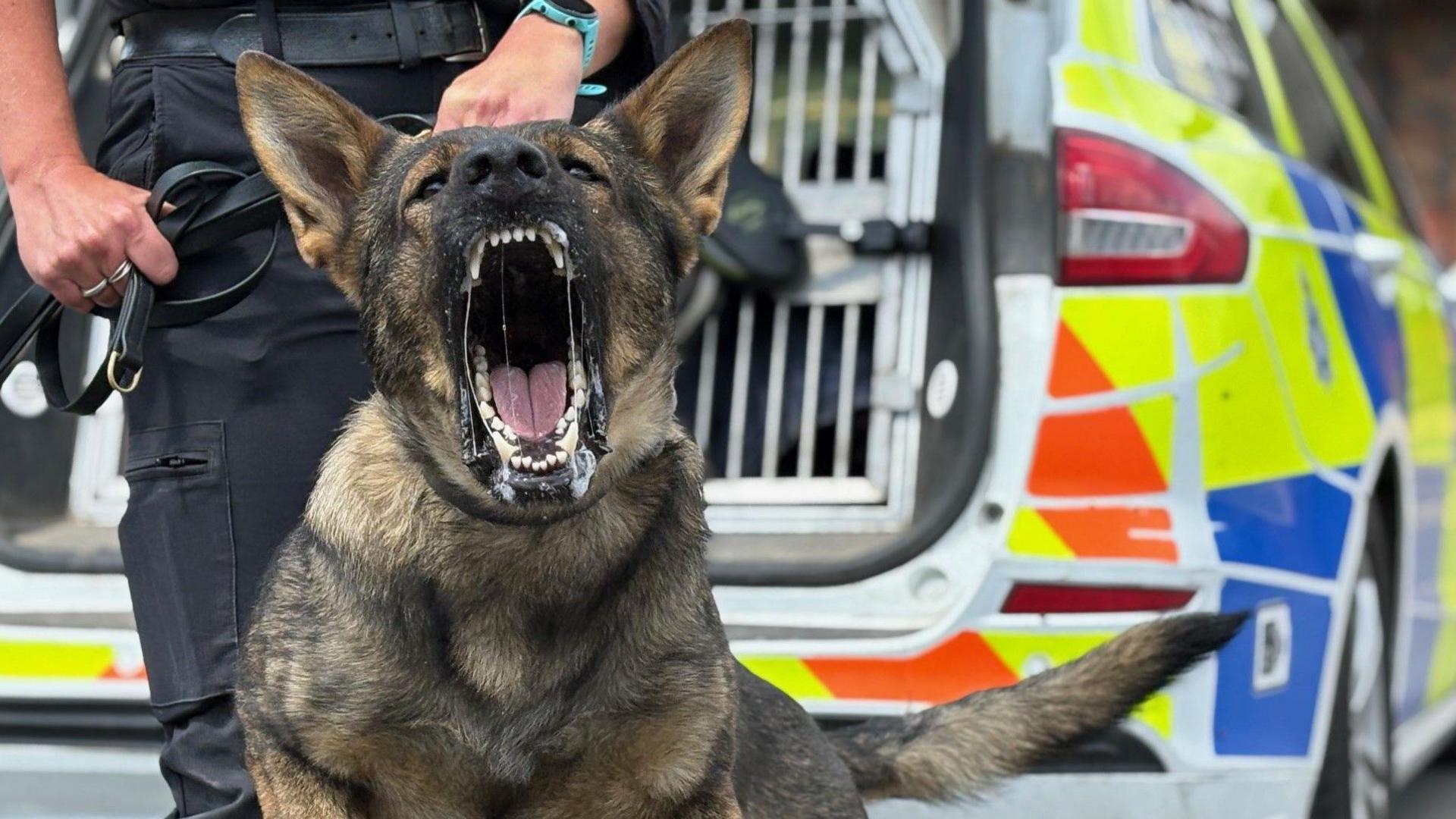
Gas, a two-year-old Czech Shepherd, likes to relax with a spot of sunbathing after catching criminals
- Published
In a mothballed police station on the outskirts of Hull, dogs and their Humberside Police handlers train for clashes with some of the region's most violent criminals. But as well as their traditional role, they are now also on the frontline of the digital war.
I'm hunched up on a shelf inside an office cupboard at the former Hessle Police Station on the outskirts of Hull, trying to work out if Ceko, a Belgian Malinois, has clocked me.
His panting is getting louder.
Ceko's handler, PC Shaun Pickering, has just ordered anyone inside the building to make themselves known. I remain hidden - at least from sight.
Ceko is sent into the building. I am now fair game.
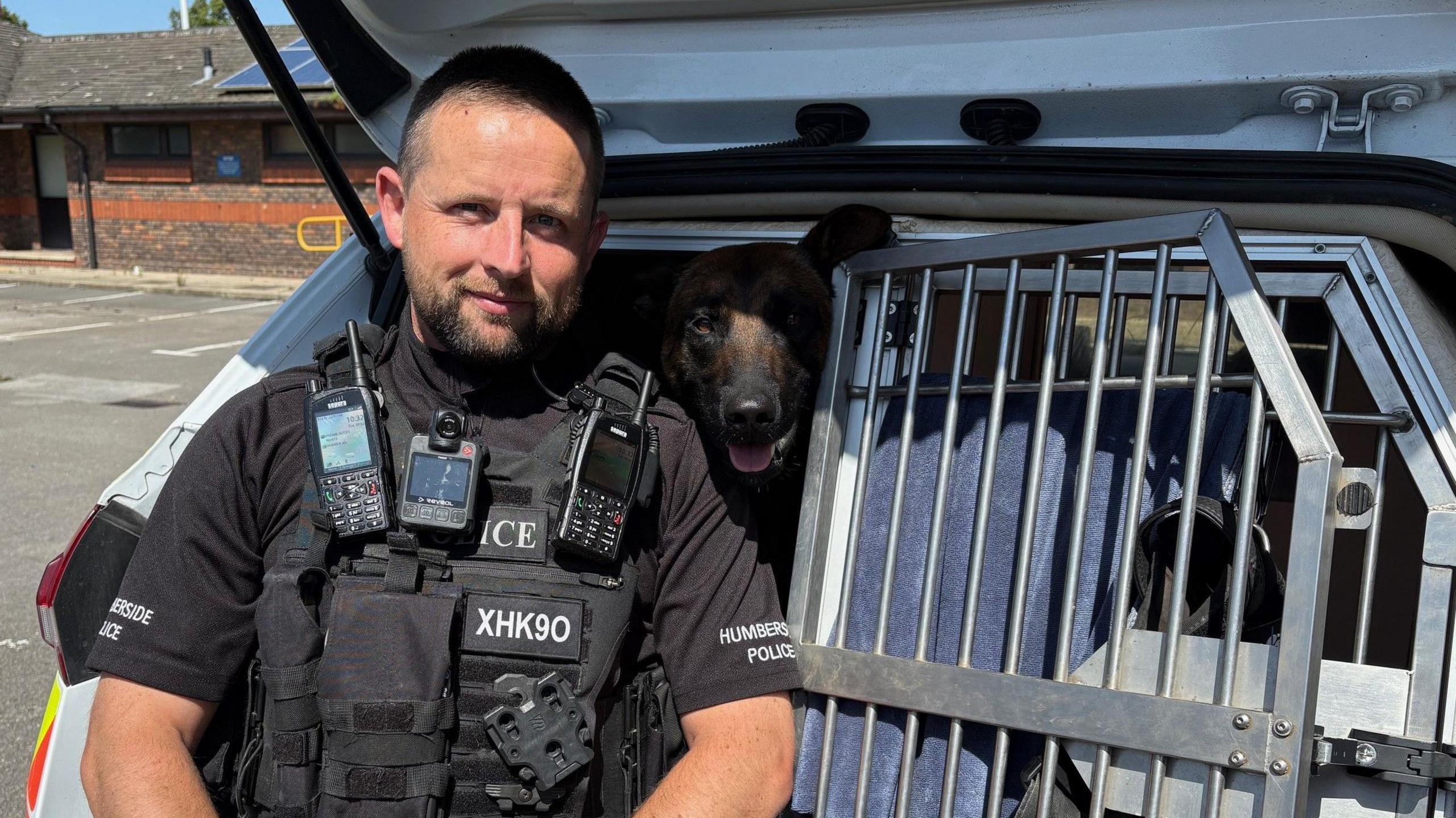
PC Shaun Pickering with his general purpose police dog Ceko
I hear a soft growl. Then barking, mixed with the sound of heavy paws on carpet tiles, as I hold down the thin metal door - the only barrier separating me and a set of razor sharp teeth.
I'm sharing my cramped hiding place with Steve Gill, Humberside Police's dog trainer. He's known by the 16-strong team of handlers as "The Guru" due to his bank of knowledge.
We're playing the role of burglars, but I wonder if Ceko - his barks rebounding off corridor walls - also knows it is a training exercise.
Mr Gill whispers: "If this was real-life, our adrenalin would be flowing and our hearts would be pumping faster and faster. We'd be giving off a lot of odour for Ceko, making it even easier for him to find us."
Tapping the cupboard door, he adds: "If he manages to get this open, we're off to A&E."
In the dim light, I think I spot a flicker of a grin.

BBC journalist Kevin Shoesmith attempts to evade Ceko in a cupboard
Earlier, as we talked through the plan for the exercise, PC Laura Delaney told me how she knows when her dog Gas, a two-year-old Czech Shepherd, has locked on to his target.
"He'll suddenly go quiet," she said. "That's him double-checking he's found the suspect."
Fortunately, I can still hear panting and the occasional bark.
PC Delaney told a lot of police dogs, including Gas, can "smell fear a mile off".
"He's a bit mischievous," she told me. "He might walk up to you and bark to see how you react."
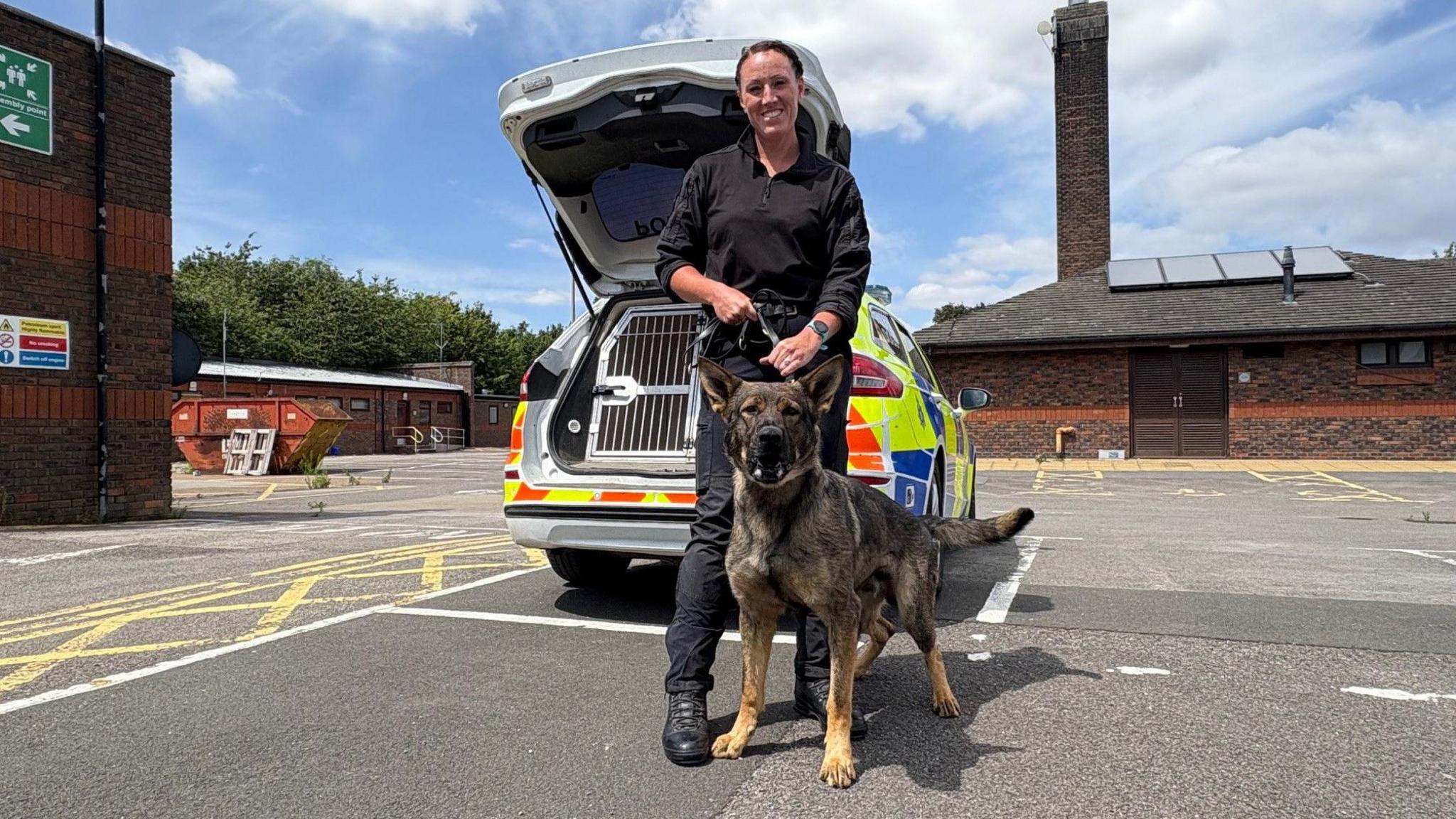
PC Laura Delaney says Gas is "loveable", despite his fearsome appearance
PC Delaney said rest plays a key part in keeping the section's dogs healthy and motivated.
"When Gas doesn't see me in black, he knows it's a rest day," she said. "He has a huge run in the garden and loves sunbathing on his day off."
All the dogs live with their handlers and their families.
"People are surprised when they see how cuddly Gas is with me," said PC Delaney, as Gas gives her a lick.
Key to that statement is her last two words.
She said: "Gas is like a baby elephant and loves coming to work. He's absolutely full of it."
"Like his handler," quipped another officer.
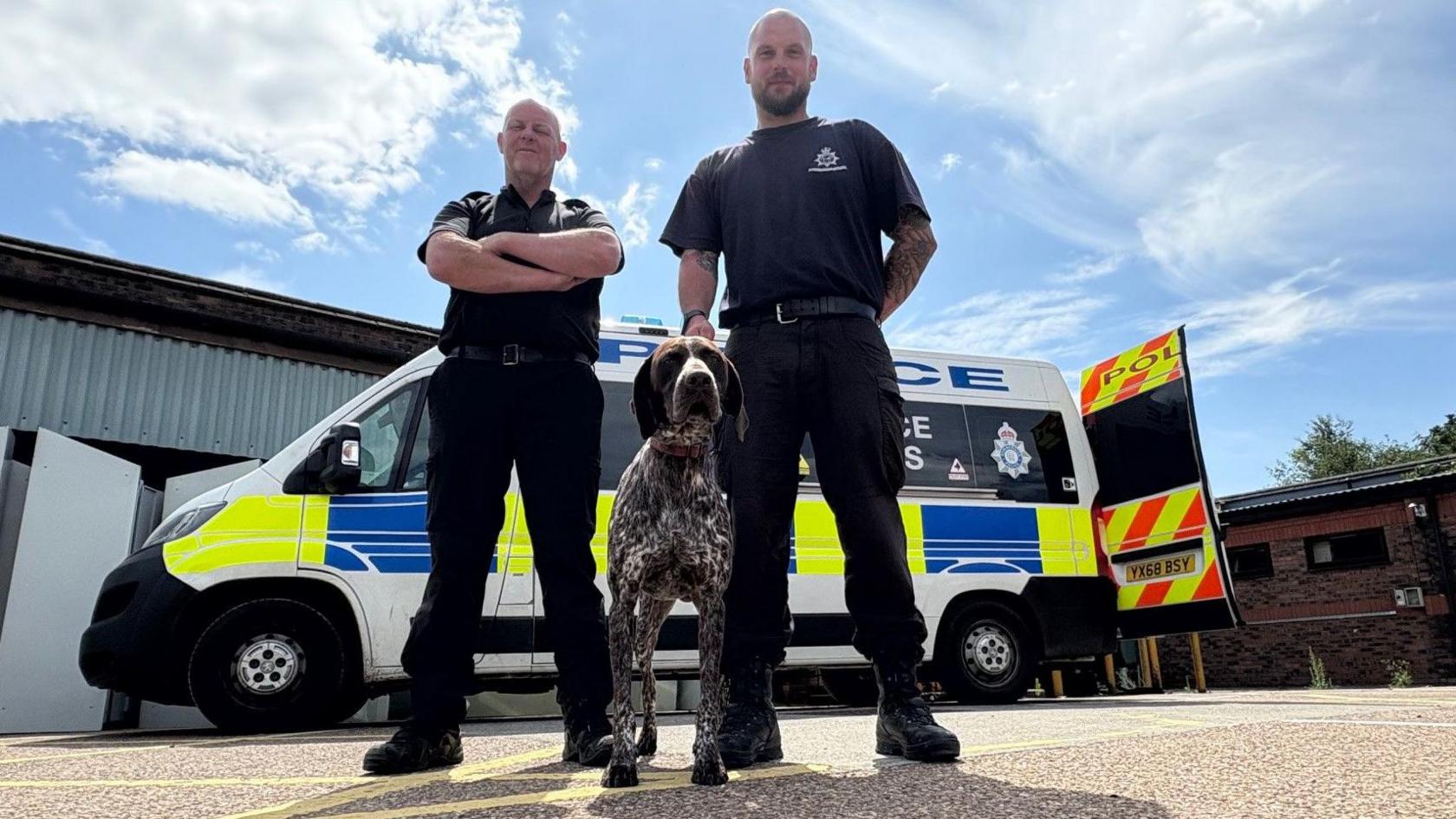
Humberside Police's dog trainer Steve Gill, left, and handler PC Phil Lusby, with digital search dog Dexter
Inside the cupboard, I've become aware of a rhythmic whooshing noise inside my head, as my pulse rises. Ceko is close.
Mr Gill whispers to tell me what he is looking for in a potential police dog.
"You're looking for confidence and a calmness," he says. "Nervousness and aggression usually come from a place of fear. You want a calm dog who, with a flick of a switch, can think, 'right, there's a fight on now'."
The force uses a number of breeders, even occasionally taking on dogs that need rehoming.
Ceko, now barking loudly, doesn't appear very calm.
Police forces are gradually moving away from German shepherds, I'm told, with the Belgian Malinois fast becoming the general purpose dog of choice due to its greater agility.
Regardless of their breed or role, the dogs' welfare is paramount, stresses Mr Gill, lowering his voice.
"You have to be a good gaffer," he says. "There needs to be mutual respect between the handler and their dog.
"The dogs are motivated - they want to do a good job, just as we do. Our job is about showing the dog the route to their reward."
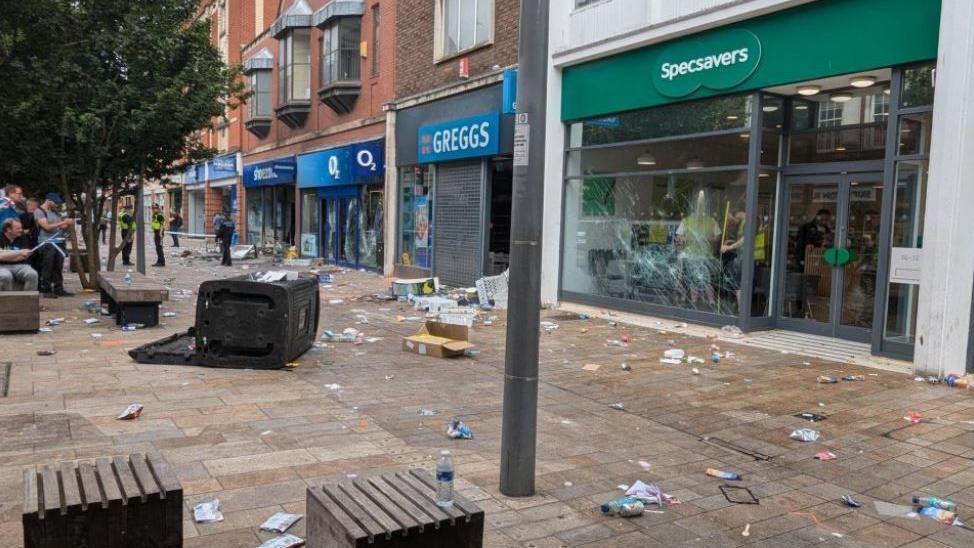
The aftermath of the Hull riot in 2024
Earlier, in the dogs' makeshift exercise yard, PC Pickering told me about a recent success story.
"We were called to a [vehicle] fail to stop," he recalled. "We arrived 30 minutes after the suspect had run off.
"But the dog picked up his scent, leading me on a 50-minute track. We got him. I was absolutely amazed."
Steve Matthews, an officer of 20 years' experience, was taking his general purpose dog Sapphire for a stroll when I caught up with them.
He told me the force's dogs were "always being requested by our colleagues".
"During the disorder we had in Hull last year, we had four dogs on the front line doing the work of 18-20 bobbies, pushing the crowds back," he said.
But it is not always suspects who are the dogs' targets.
PC Matthews said: "Of course, all officers get that buzz from catching someone committing a crime, but there's also a side that often gets overlooked and that's where we are used to help find vulnerable people.
"We sometimes get called out to help search for an elderly person or someone with dementia."
As Ceko's panting becomes louder, I use my foot to clamp the door.
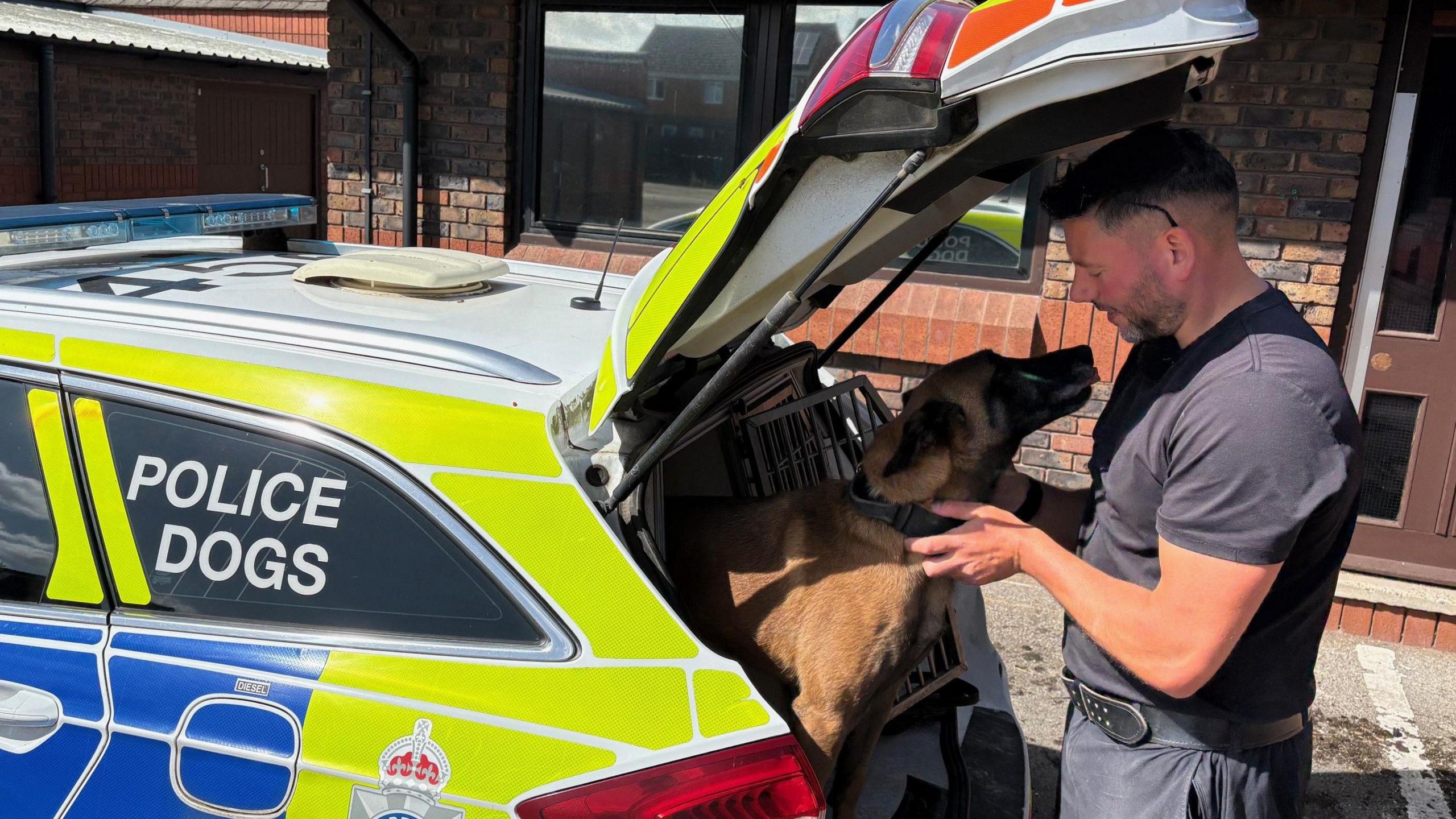
PC Steve Matthews, pictured with Sapphire, says the bond between handler and dog "is like no other"
The section is home to a variety of search dogs, including spaniels, Labradors and pointers.
Last year, Dexter - a German shorthaired pointer - became the force's first licensed "digi dog".
"A lot of crimes these days are digital or have digital elements to them," explained PC Matthews. "That's where digi dogs come in."
These dogs are trained to sniff out devices such as a SIM cards, tracking devices and mini cameras.
Before taking to the cupboard to play "Billy Burglar", I watched as Dexter made his way along a "scent wall" - hollow bricks, with a multitude of hiding places for the tiniest of electrical items.
PC Phil Lusby had hidden a tiny SIM card.
Within seconds, Dexter had found it - his body frozen, his nose pointing directly at the object.
"It's 21st Century policing but there's still nothing better than a dog's nose.
"Digi dogs are playing an increasing role in sex abuse and stalking cases."
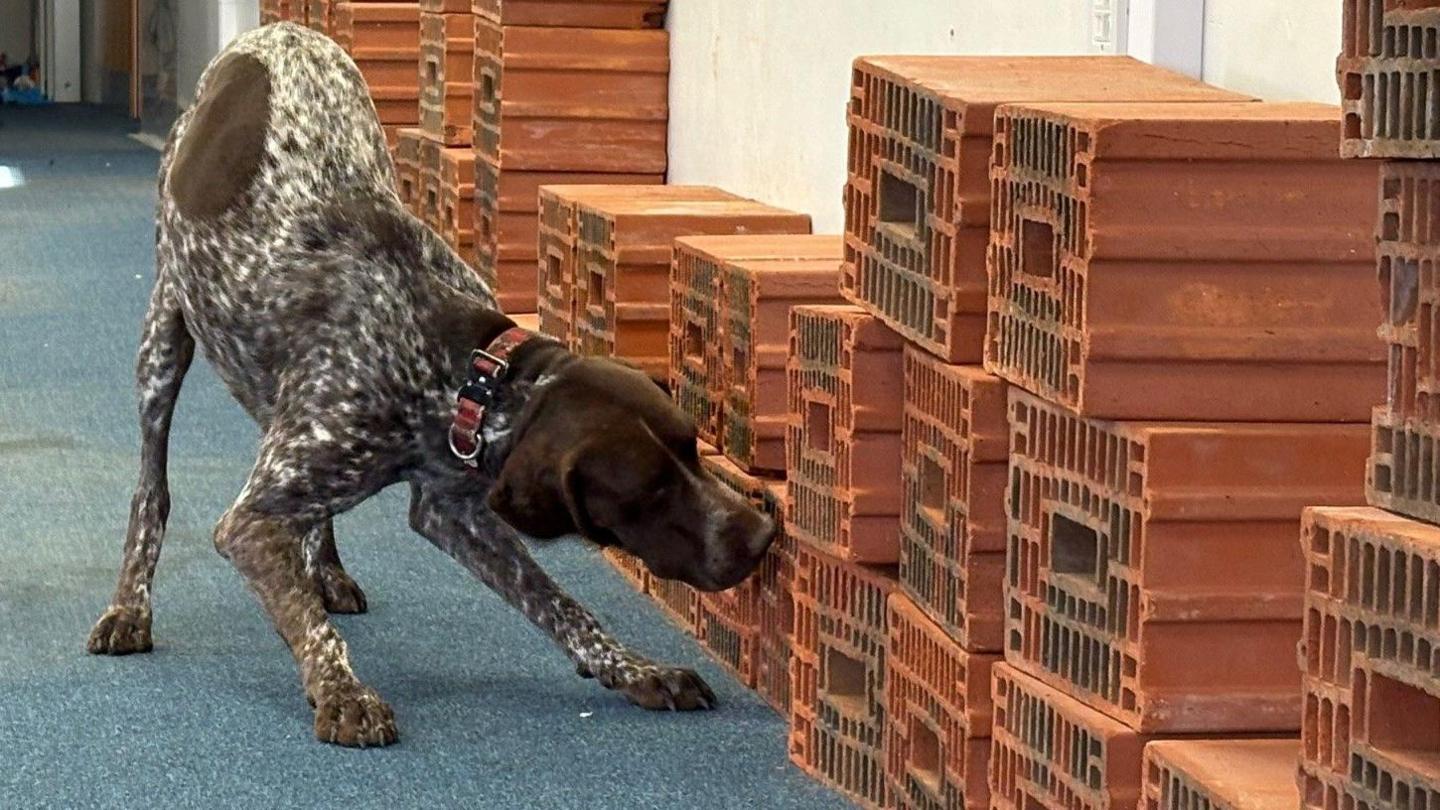
Dexter, a "digi dog", searches for a mobile phone SIM card hidden among bricks
PC Lusby said the jury was still out on what exactly the dog senses.
"It used to be thought that the dogs were picking up a coating applied to electrical components," he says. "Now, it's generally accepted that the dog is putting a number of different scents together."
Whether a search or general purpose dog, the handlers know danger lurks around every corner.
"Often we put our dogs into the unknown," said PC Mathews. "We don't know if the suspect has weapons.
"Police dogs are amazing but they are not superheroes, and decisions we all make can mean the difference between life and death.
"I see them running off into the darkness. I worry. But I also have confidence in their ability."
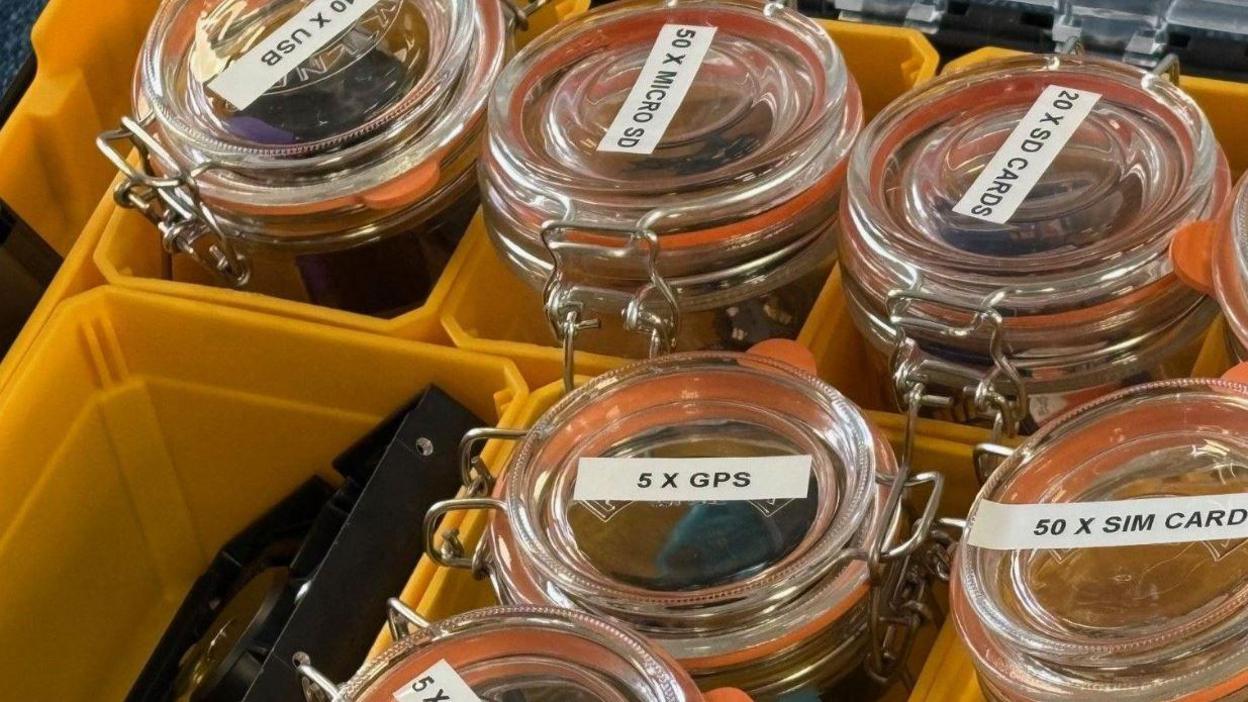
Box of tricks: "Digi dogs" are trained to sniff out a range of digital objects
From my hiding place, it's apparent the game is up.
PC Pickering shouts: "Anybody in there, come out now! Police officer with dog."
Gingerly, Mr Gill and I open the cupboard door.
Blinking in the light, we are met with a snarling mouth and saliva dripping on to the carpet tiles.
"Any form of movement and the dog will be sent to detain you," warns PC Pickering.
I didn't stand a chance.
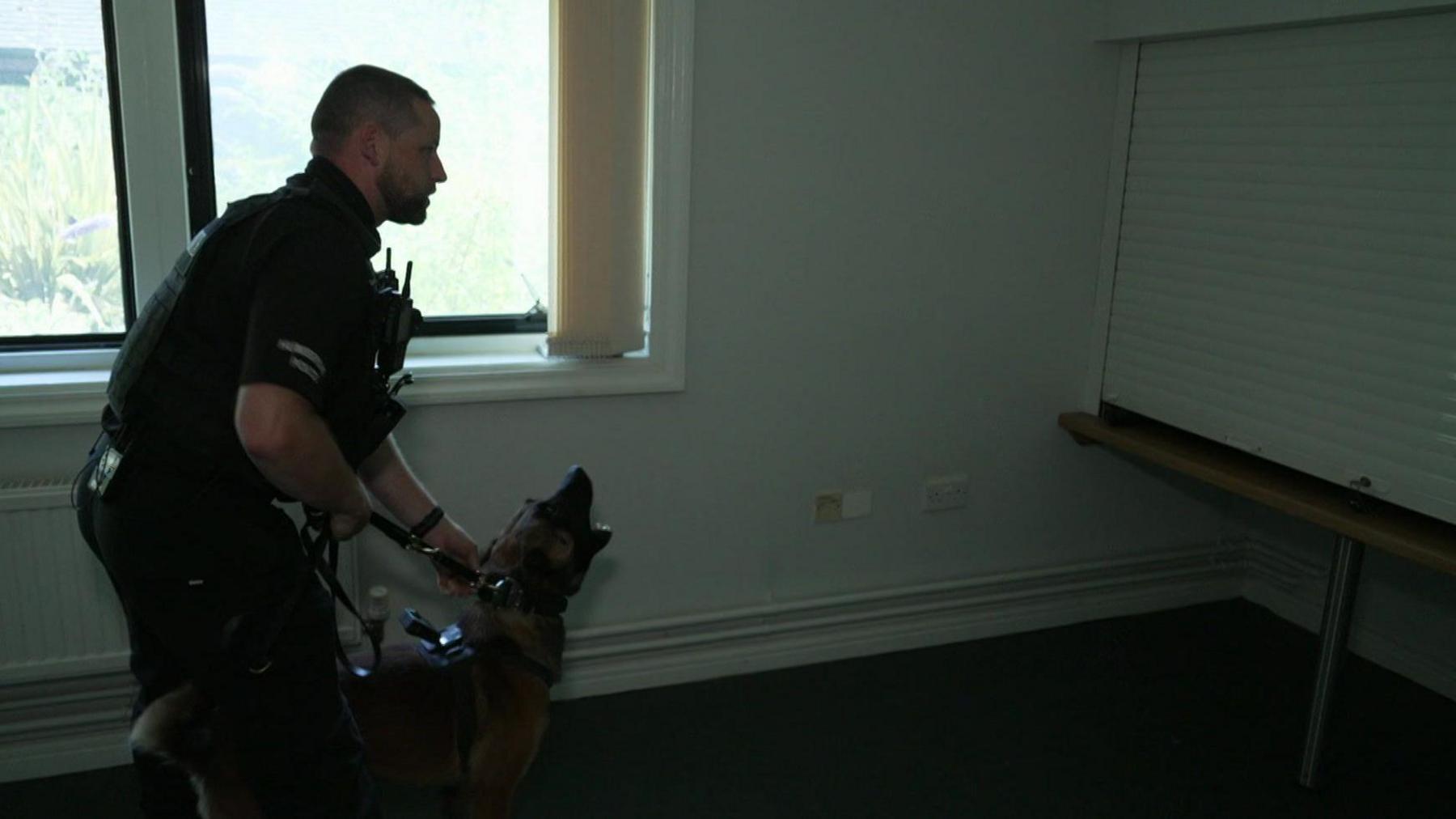
Ceko and his handler PC Shaun Pickering are waiting for us
Listen to highlights from Hull and East Yorkshire on BBC Sounds, watch the latest episode of Look North or tell us about a story you think we should be covering here, external.
Download the BBC News app from the App Store, external for iPhone and iPad or Google Play, external for Android devices
Related topics
- Published9 July
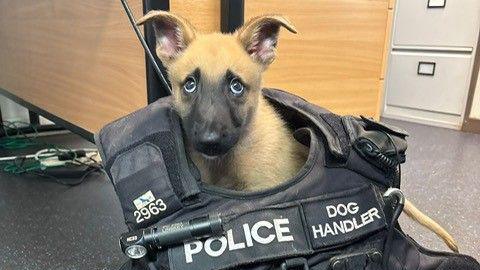
- Published7 July

- Published3 July
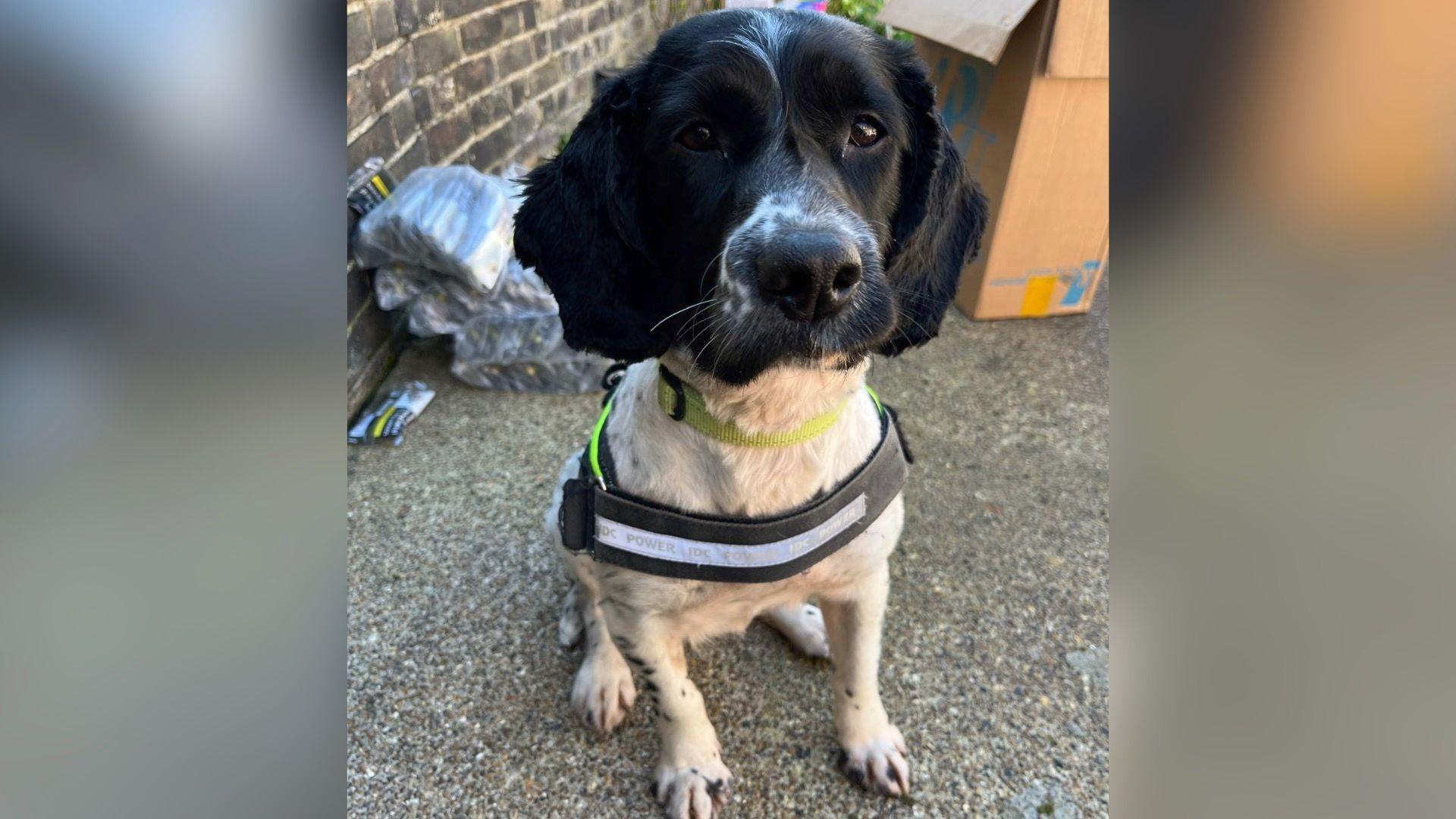
- Published30 June
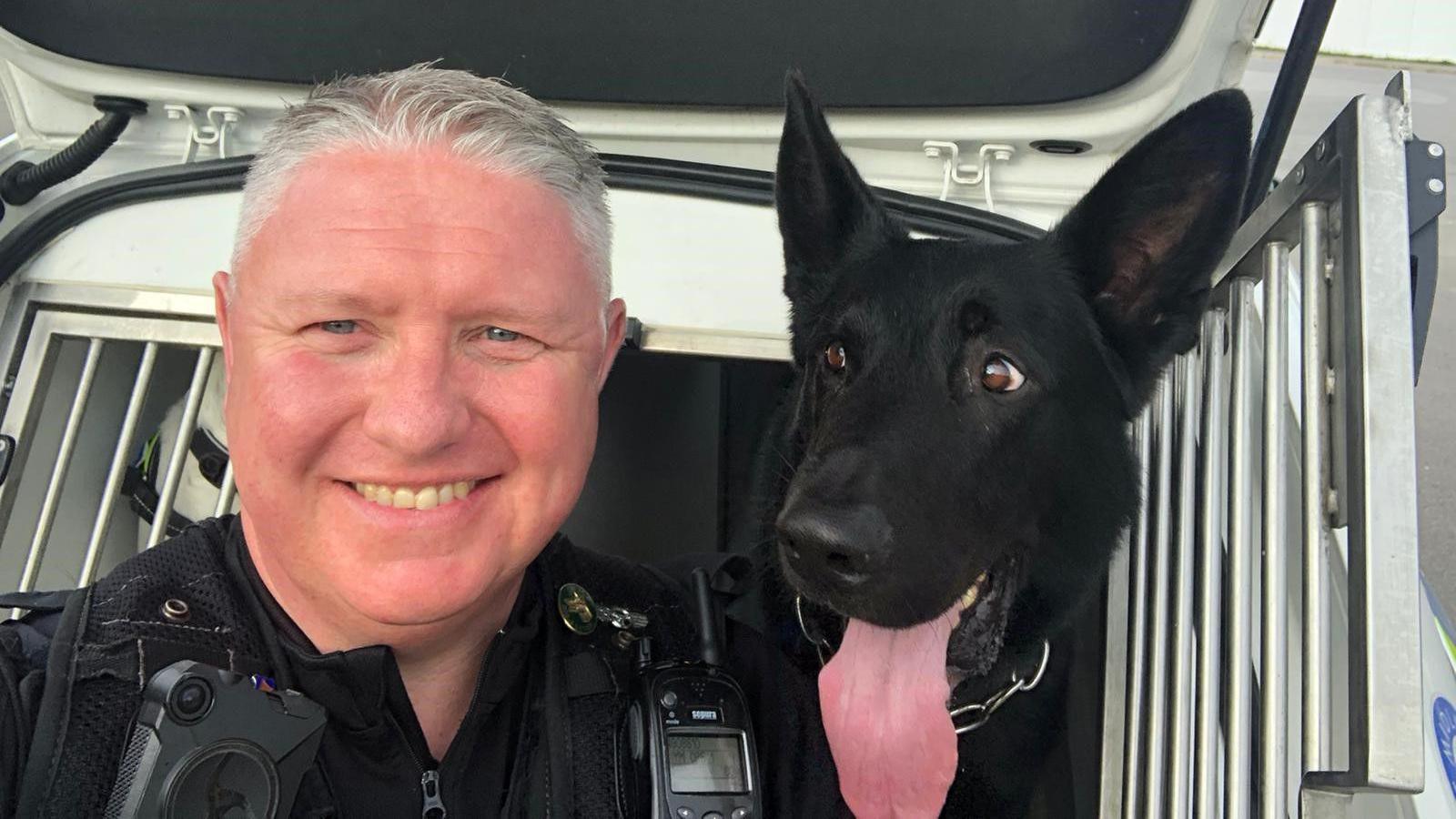
- Published3 July
